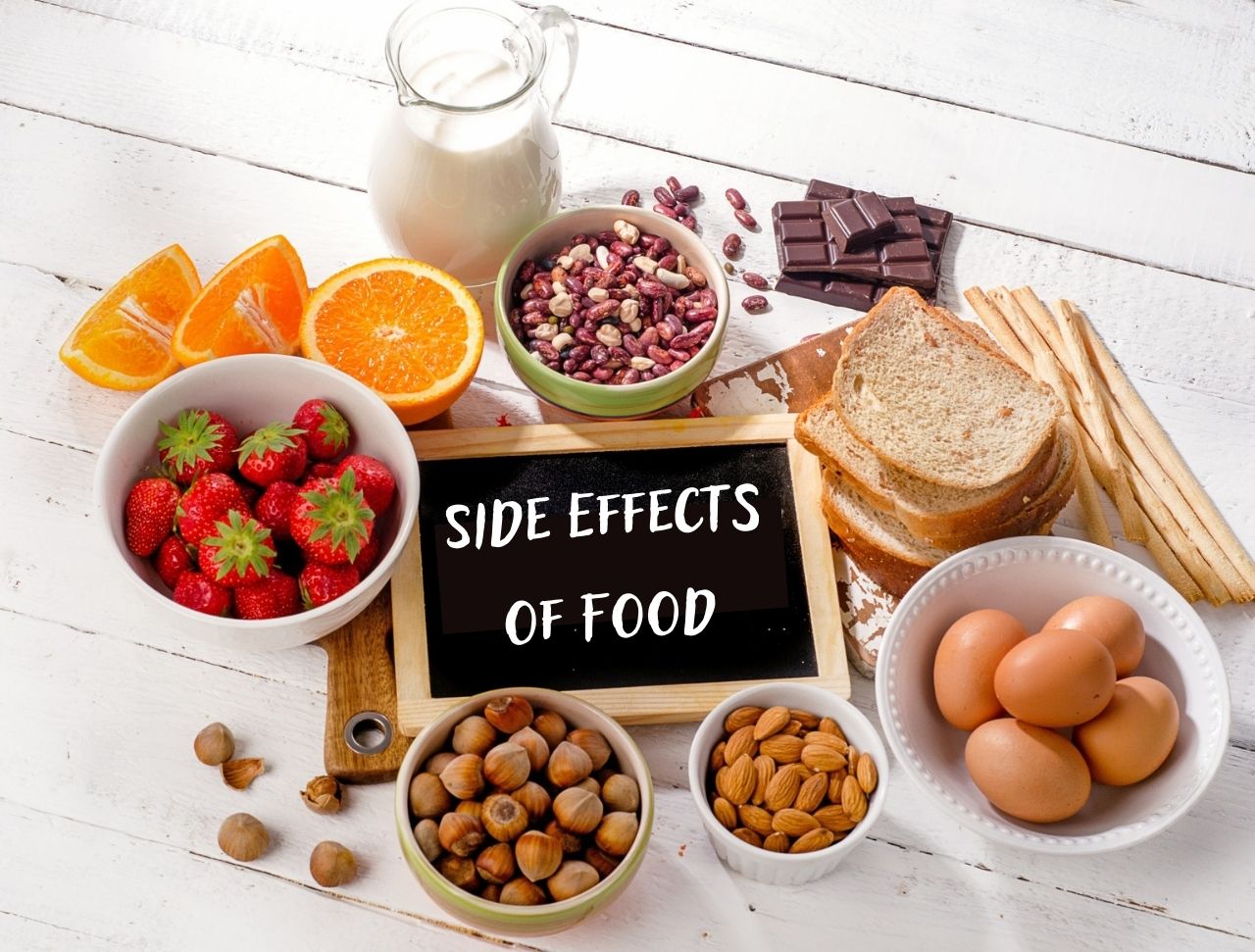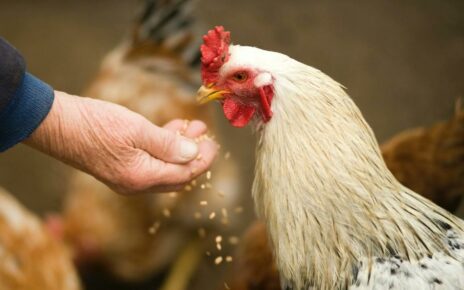As a Muslim, what comes to mind first when we feel and think about eating? Undoubtedly, if it is halal and tayyib, then probably taste, smell, or color of the food. If we are one of those who should think about our weight, we think a lot of energy, fats, sugars, vitamins or minerals.
On the other hand, be aware that the foods we eat can cause side effects. Side effects are usually attributed to medicines, but even freshly prepared or just cooked foods can also cause side effects, making some people just irritating, some serious, and causing other sorts of trouble.
However, the foods represented in the list below are not meant to be foods that should be avoided. These foods can cause side effects. Most effects do not occur in everyone, and they do not always have the same side effects when they eat that food. And besides, most foods (Especially fruit, vegetables, and even chocolate) outweigh the potential side effects.
The side effects we will talk about are not always the features to be feared. Sometimes the side effects that we know are useful in eliminating some of our ailments caused by unbalanced nutrition. For example, if we are constipated for some reason, we can treat foods with diarrhea side effects; or if we have diarrhea, we can use foods that have the side effect of constipation in our treatment. In the same way, foods that have the side effect of giving sleep can come to our rescue at a time when we suffer from insomnia. The important thing is to know these side effects in our foods correctly and to benefit from them when necessary. Therefore, we should immediately consult a doctor in our ailments and think that we can treat ourselves with these foods without having to take drugs that have many side effects and can harm our faith.
Here is a list of side effects of some food types:
- Allergies
In theory, any food can cause allergies. But in fact, only a few of this 90% can be to blame for allergic reactions. Most people with food allergies are allergic to a smaller number of foods.
Foods that can cause allergic reactions most often:
Milk, wheat, eggs, soy, fish, shellfish (Such as mussels, crab, and shrimp), peanuts, nuts.
Other foods that can cause allergies are:
Garlic, corn, oats, lentils, kiwi, hot pepper, sesame seeds, sunflower seeds, spinach, orange, chicken, strawberry, tomato, beef.
- Bad Breath
Certain foods can cause a bad odor. This is because they contain volatile sulfur compounds that cause a bad odor.
These foods are collected and blown by the blood system through the lungs for several days after eating:
Onion, garlic, cabbage, curry, dairy foods (For people with lactose intolerance), candies
- Body Odor
Frequent consumption of red meat and processed foods have a negative effect on the attractiveness of body odor.
- Diarrhea
Many people get diarrhea after eating the following foods:
Foods containing sorbitol – apple juice, pear juice, and some mixed fruit drinks unripe fruit, raw vegetables, dairy products, fatty foods, spinach, apricots, plums, sesame seed oils.
- Constipation
The most common cause of constipation is a lack of fiber and consume a lot of animal fat.
Foods that can cause constipation:
Meat – especially beef
Refined grains – biscuits, pasta, cookies, pastries, bread, pasta, bagels, rolls
Starchy foods – potatoes, rice, corn, beans
Dairy products – milk, cheese, ice cream
Packaged and fast food – burgers, fries, sausages, pizza, chips
Sugar-based products
- Gas, Bloating, Abdominal Bloating
Many carbohydrate-containing foods cause gas. Accordingly, fats and proteins can cause some gas.
Common gas-causing foods:
Foods containing raffinose – beans, cabbage, Brussels sprouts, broccoli, asparagus, whole grains
Foods containing lactose – milk, cheese, ice cream, bread, cereal, salad dressing
Foods containing fructose – onions, artichokes, pears, wheat
Foods containing sorbitol – apples, pears, peaches, prunes
Starch – potatoes, corn, vermicelli (Rice does not cause gas, only starch)
Foods high in fiber – oat bran, wheat bran
- Frequent urination
Many foods that are high in vitamin C have natural diuretic properties and can lead to frequent bathroom visits.
Watermelon, cantaloupe, cranberry juice, cucumber, asparagus, eggplant, anise, celery, lemon, cabbage (A moderate amount), coffee, tea.
- Oedema, Swelling, Water Retention
Foods containing salt, sodium, or sugar can significantly conserve body fluids and worsen oedema. A constant concentration of salt in body tissues is required. When excess salt is taken, the body keeps more Water and tries to dilute the salt.
Foods that commonly cause water retention include:
Salty foods – olives, pickles, soy sauce, canned soup, sausage, salted nuts, processed meats, chips, bagels, smoked fish, candy, chocolate, caffeine.
- Heartburn and Acid Overflow (Reflux)
There is a relatively long list of foods that cause heartburn. A muscle that helps to keep the stomach contents between the esophagus and the stomach (When a person swallows a bite, these muscles relax and allow the food to pass from the esophagus to the stomach. Other times they remain closed, preventing the stomach contents from coming back from the throat.). Some foods produce more acid than normal in the stomach, and when this muscle is weak, it causes acid overflow (Reflux) into the esophagus. After the esophagus is damaged by this reflux, other foods can further irritate the esophageal mucosa.
Common foods that trigger heartburn include:
Tomatoes, citrus (Lemons, grapefruit and oranges), chocolate, fried and fatty foods, potato chips, hash browns, fried oysters, caffeine, onions, garlic, mustard, vinegar, fizzy drinks (Such as soda), spicy foods, nuts, egg, mint.
- Stress
Some foods and beverages act as strong stimulants on the body. As a result, stress occurs. These foods are called “pseudostressors” or “sympathomimetics”.
For example; caffeine containing foods (Coffee, tea, cocoa, and chocolate), refined sugar, flour, salt, saturated fats, preservatives, emulsifiers, thickeners, stabilizers, flavor enhancers, processed foods such as fast food, and foods that contain synthetic additives.
- Insomnia
Some foods can both help you sleep while other foods will keep you awake. Foods that contain a chemical called tryptophan, an amino acid, are sleepy.
Foods causing insomnia include:
Caffeine containing (Coffee, tea, cocoa, chocolate), sugar, fat or spicy foods, food additives (MSG, artificial colours, sweeteners)
- Sleepiness (“Sleepy Foods”)
The combination of high-carb, low-protein is thought to increase the availability of tryptophan in the brain, which helps more melatonin and serotonin.
The following foods can have a sleep-inducing effect:
Dairy products (Curd, cheese, milk), soy products (Soy milk, tofu, soy), hazelnut honey, almonds, bananas, poultry, whole grains, beans, rice, oatmeal hummus, lentils, hazelnuts, peanuts, avocados, eggs, sesame, sunflower seeds, flax seeds, papaya.
- Gastritis, Peptic Ulcer
Some foods can irritate the stomach lining by increasing stomach acids. Fast food can aggravate gastritis. These can, over some time, damage the stomach lining.
Foods that usually irritate the stomach lining contain Sodium and calcium propionate:
Spicy foods – black and red pepper, hot pepper, sodas
Very acidic foods – coffee, lemon, pineapple, orange, tomato
Fast food containing these ingredients, such as pastries, scones, pizza…
- High Blood Pressure
Some of Foods can cause high blood pressure, which are:
Meat, salt, sugar, fatty foods.
- High Cholesterol (Hyperlipidemia)
The intake of saturated fat, trans fat, and cholesterol can increase blood cholesterol levels. In turn, it increases the risk of coronary heart disease.
Saturated fats tend to raise both HDL (Good) and LDL (Bad) cholesterol.
Transfats are produced by heating liquid vegetable oils in the presence of hydrogen. These fats are worse for cholesterol levels than saturated fats. Because it has higher LDL and lower HDL
Scientific research has shown that there is a weak correlation between the amount of cholesterol a person consumes, and their blood cholesterol levels. However, for some people, a small but beneficial effect on cholesterol in blood levels can be achieved by reducing the amount of dietary cholesterol.
Foods high in saturated fat
Palm oil, coconut oil, egg yolk
Fatty meats: beef, lamb, poultry skin, and fat
Processed meats: salami, sausage, pastrami
High-fat dairy products: milk, cream, ice cream, cheese, butter
Foods high in trans-fat: hydrogenated vegetable oils, vegetable baking oils, margarine
Bakery products: biscuits, crackers, cakes, donuts
Fried foods: French fries, chips





